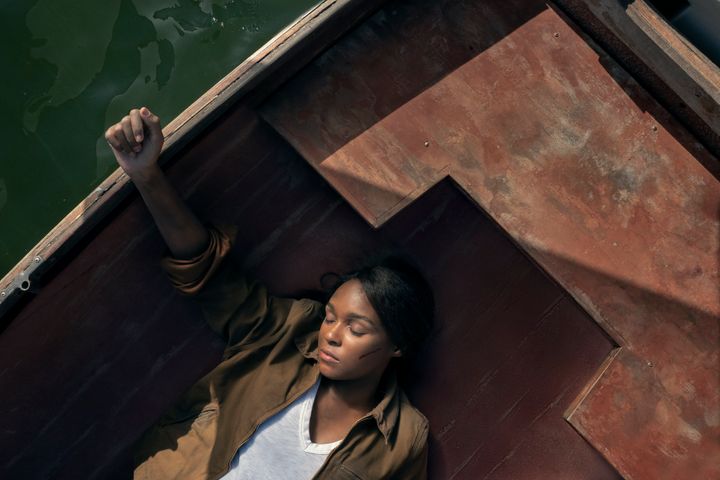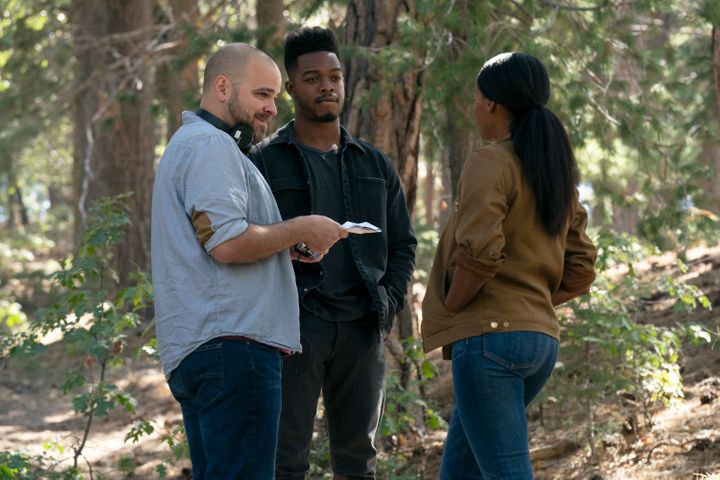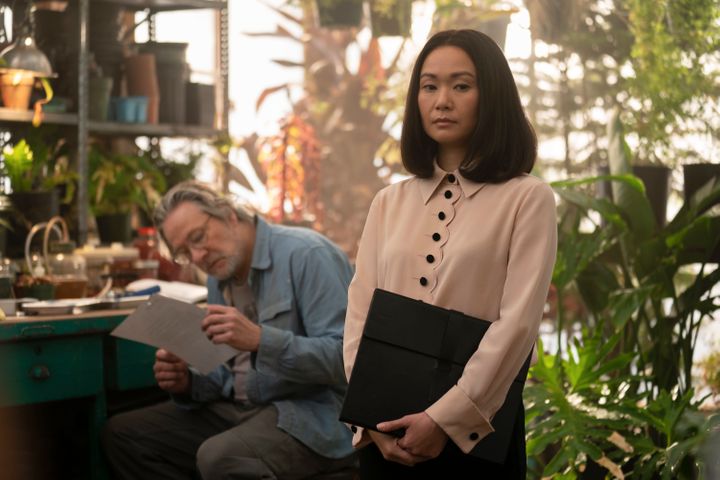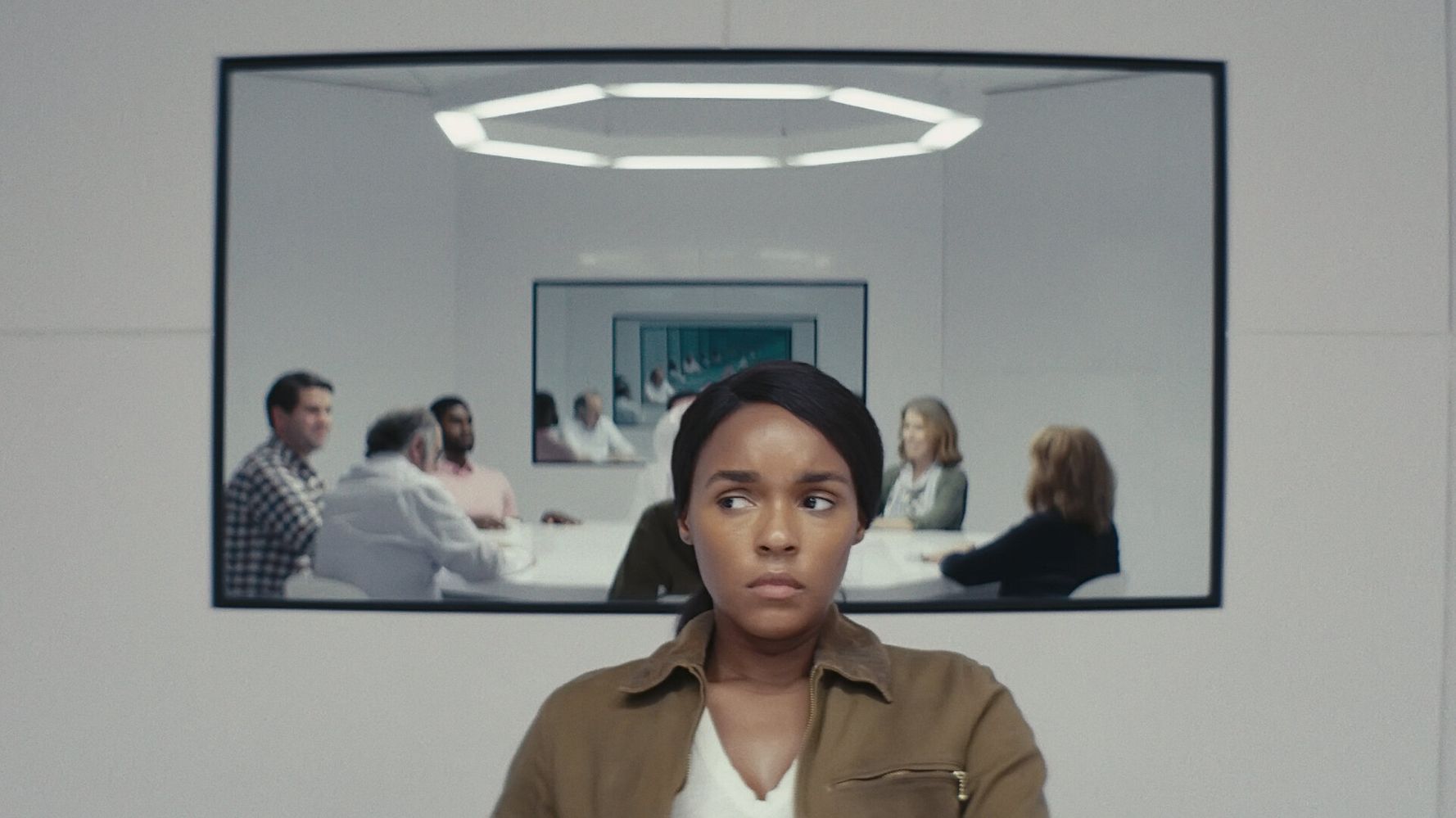[ad_1]
The first season of “Homecoming” began with a therapy session, gentle and unextraordinary — the start of a gradual build toward something more conspiratorial. The second season is less withholding. It begins with a flurry of panic. A woman awakens to find herself in a rowboat on a lake, unsure how she got there or why her memory is so hazy. She hustles to put the pieces together, but by the end of the episode, she’s incapacitated again, clearly several layers deep in an ordeal she can’t attempt to explain.
“Homecoming” was conceived as two seasons, one adapted from the popular fiction podcast of the same name and another that stretches beyond it. The inaugural edition, starring Julia Roberts and Bobby Cannavale, hopscotched between past and present with a more-than-meets-the-eye lure reminiscent of paranoid 1970s movies. By the midway point, viewers were trained to anticipate twists. Season 2 knows that, so it introduces one in the opening frame.
“It’s designed to be a little bit more pulpy,” director Kyle Patrick Alvarez said. “That was always my joke to Amazon: ‘There’s going to be chases this year.’ It’s more outwardly thriller-y as opposed to Season 1, which was toying with you.”
That pulp factor extends across the seven new episodes, which premiere Friday. Even the casting is a tell. Janelle Monáe portrays the confused woman in the boat, assuming the job of protagonist after Roberts bowed out as reportedly intended. A series built around an A-list Oscar winner like Roberts demands certain prestige-TV hallmarks — psychoanalytic setting, moody lighting, complex narrative techniques — but now the show has permission to be more of what Alvarez calls a “quick-paced thrill ride.”

“One of the producers called me and was like, ‘What do you think about Janelle Monáe?’” Alvarez said. “I was like, ‘Absolutely, 100%.’ And it wasn’t just because I wanted the job. I was incredibly excited to hear her name for it. It felt like a light bulb went off. I always try to look at casting announcements from a distance. If I saw that and I wasn’t involved with it, would I think that was cool? And I was immediately like, ‘Oh yes.’ Because what is Janelle Monáe in ‘Homecoming’ going to be like? I didn’t know the answer to that.”
Since awards-friendly dramas like “Moonlight,” “Hidden Figures” and “Harriet” don’t exactly allow for eccentricities, Monáe’s acting work has yet to adopt the stylings of her colorful, vaudevillian pop career. But this is her most dynamic performance to date, as well as her most demanding. Instead of poised and self-assured, she gets to be exasperated, disoriented and morally complicated.
No big spoilers here, but when we meet Monáe’s stranded wayfarer, she’s carrying a military ID with the name Jacqueline Calico on it. That’s only a sliver of the puzzle. She’ll soon find herself connected to Audrey Temple (Hong Chau), last seen one-upping her deceitful boss (Cannavale) after he’d wiped PTSD-stricken veterans’ memories in hopes of sending them back into combat. Audrey is the connective tissue between the two “Homecoming” seasons, having seized power within the central corporation known as the Geist Group. As details emerge, so does Walter Cruz (Stephan James), the soldier who left Geist with more questions than answers after being counseled by an oblivious Heidi Bergman (Roberts).

What are the Geist Group’s origins? What are the consequences of its unethical practices? How did Jacqueline get involved? These are the mysteries that Season 2 explores, shepherded again by writers Eli Horowitz and Micah Bloomberg. Alvarez, whose previous credits include “The Stanford Prison Experiment” and “13 Reasons Why,” took over for “Mr. Robot” creator Sam Esmail, though Esmail stayed on as a producer and helped shape the storyline.
“Sam refers to it as a semi-anthology,” Alvarez said. “It’s not a whole new story, but there’s someone new you’re tracking. The specter of how much I just personally loved Season 1 has certainly loomed over my head every step of the way of making this. But at the same time, the joy in making it has been to be allowed a certain freedom. I didn’t want to make something that feels wildly different, but I also wanted the structure of the story to dictate how we would handle it differently.”
Two standout variations are the score and the aspect ratio. Instead of incorporating classic film soundtracks such as “Vertigo” and “The Thing,” Alvarez commissioned a tense, hooky score from Emile Mosseri (“The Last Black Man in San Francisco”). And instead of sometimes condensing the action’s dimensions to signal a shift in time, he maintains a static aspect ratio. Season 1 leapt back and forth between 2018 (when the titular quasi-rehabilitation program was starting) and 2022 (when Heidi’s memory had been erased), but this spans a much smaller window. If he’d implemented the same tactics, Alvarez fears audiences would have expected the same curveballs.

“I remember one of the first things I said going in was, ‘Let’s actually take some of that stuff out,’” he recalled. “Not because I didn’t love it. I loved the use of it, but I felt they were important changes. That aspect ratio served Heidi’s state. We don’t intercut the time [in Season 2], so you kind of have to start asking, ‘Oh, what was the device used for?’ With a show like ‘Homecoming’ that’s as distinctive as it is, you’re saying, ‘OK, now what we’re holding over is what we’re saying defines “Homecoming.”’ It’s a thin line between mimicking and taking inspiration from, so you always want to try to stay on the inspiration side as opposed to ‘Sam made this decision, so let’s just copy it.’”
Despite those changes, the look and feel of the series remains generally intact. Like Esmail, Alvarez uses pale grays, negative space, swirling camera revelations and a taut half-hour format to create tension. Where the initial go-round had Sissy Spacek, Dermot Mulroney and Marianne Jean-Baptiste in key supporting roles, this one boasts Chris Cooper and Joan Cusack, the latter playing a shady official from the Department of Defense. Ultimately, the whole thing serves as a coda to the first season.
“The enjoyment doesn’t come from, ‘Oh my God, I can’t believe that happened,’” Alvarez said. “The enjoyment comes from, ’Oh, that’s how those characters ended up in that situation.”
Calling all HuffPost superfans!
Sign up for membership to become a founding member and help shape HuffPost’s next chapter
[ad_2]
Source link

